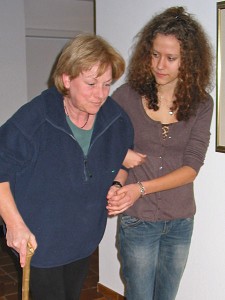Tag Archives: family
Britain’s workforce in 2022: From a nation of pen-pushers to an army of carers
Once we were a nation of factory workers and farm hands, then a country of office pen-pushers. Britain’s workforce has transformed many times to meet the needs of a changing society and economy.
Elderly care demand to 'outstrip' family supply
“neighbourhood networks” should be built to help care for older people
The number of older people in England needing care will “outstrip” the number of family members able to provide it by 2017, a think tank has warned.
An Institute for Public Policy Research (IPPR) report estimates that by 2030 there will be more than two million people aged 65 and over with no child living nearby to give care if needed.
The IPPR said the country must “build new community institutions” to cope.
Identifying and supporting informal carers
Carers need to be encouraged to see themselves as carers

Image credit: Produnis
In this guest post, Dr Emma Carduff and Dr Anne Finucane, co-authors on a new paper published today in BMC Family Practice explain why it’s important to support the carers of people approaching the end of their lives.
Approx. 10% of the UK population have an unpaid caring role for a family member or friend. Many of these carers make a significant contribution to supporting people who are approaching the end of their lives. With increasing numbers of older and frailer people in the population, informal carers will play a vital role in caring for family members as health deteriorates and end of life approaches. In particular, care from informal carers, who are generally family members, is essential for those who wish to be cared for in their own home.
Carers can experience poor physical and psychosocial wellbeing, yet they remain largely unsupported by health and social services. It is essential that carers are supported both to maintain their own health and wellbeing and to care for their family member or friend. However, before they can be supported, carers need to be identified.







